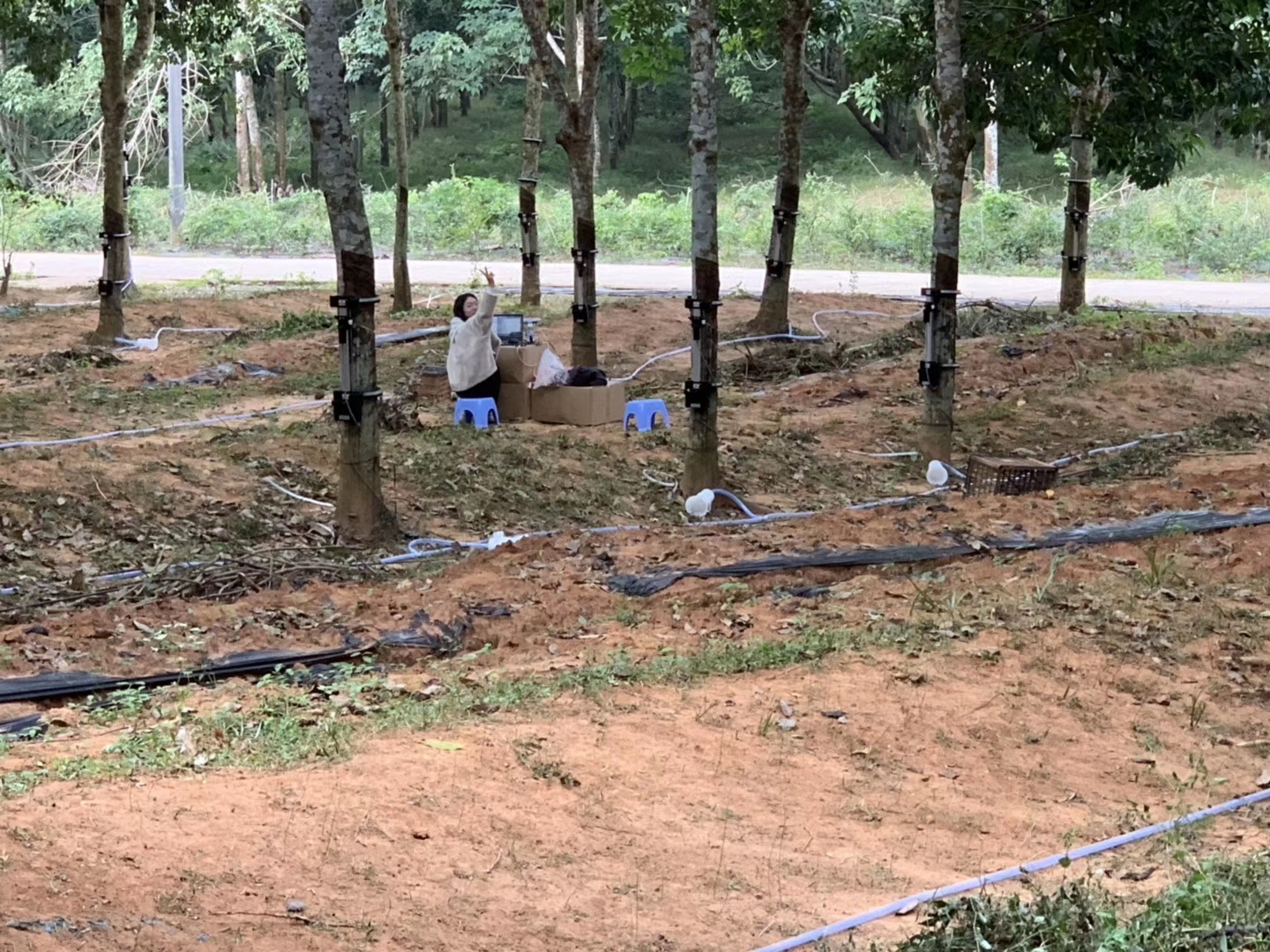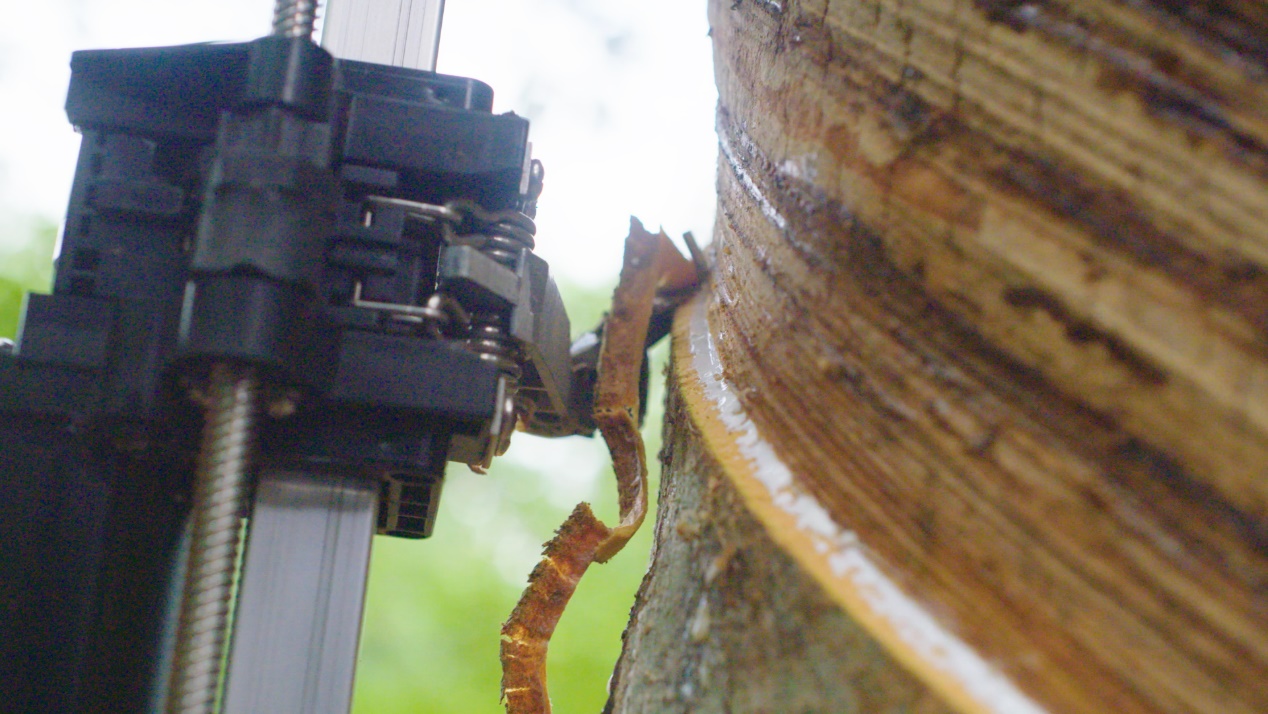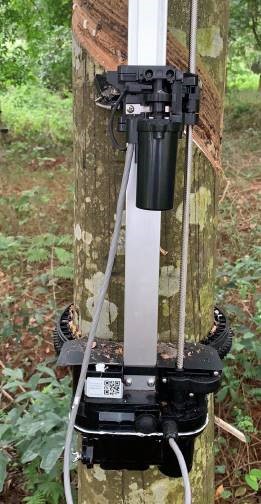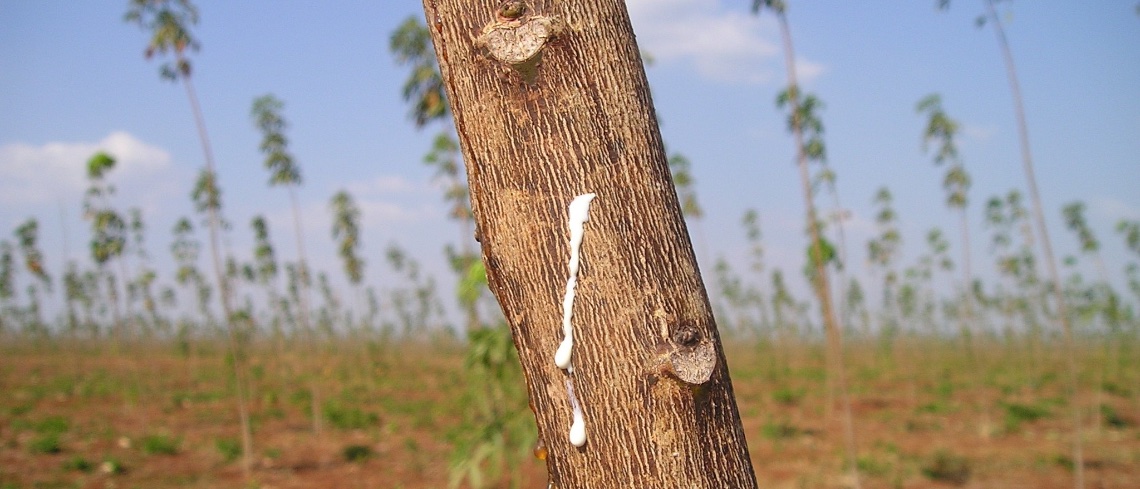To improve the accessibility of our content, please find the audio version of this blog post.
A new rubber tapping industrial robot with an STM32WL is transforming plantations in China and South-East Asia. The project, led by CIHEVEA, a Chinese company, uses LoRa® to optimize tapping operations. For instance, the robot takes the weather into account to cut trees at optimal times and improve working conditions. Indeed, as the workforce still struggles with the global pandemic, the smart rubber tapping system can compensate for a reduction in staffing and improve conditions for those on the ground. The first deployments led some estates to triple their yields, thus proving the success of initial projects. As a result, CIHEVEA is now looking to increase the number of pilot rubber estates from three to ten. The company is also planning to export the robot to Indonesia, Thailand, and Malaysia.
Rubber Tapping Robot: How to Solve the Packet Losses and Power Consumption Conundrum?
The rubber tapping robot has primarily two parts: a movable arm that cuts into the tree and the communication module. When CIHEVEA first worked on this project, they chose to adopt a proprietary FSK modulation. Problems arose when significant interferences from nearby power lines led to numerous packet losses. Additionally, the FSK modulation didn’t work well with a mesh network of thousands of devices. Finally, the company faced the challenge of creating a system with low power consumption that could last a year on a single battery while also coming up with something that could weather high humidity and tropical storms.
CIHEVEA approached ST’s competence center to see if we could find a solution. After various proofs-of-concept, we all settled on the STM32WL. Indeed, by using LoRa modulation, the company is now experiencing nearly flawless communication with almost no packet drops. Moreover, CIHEVEA can now create a more robust mesh network to interconnect all systems. Our engineers also chose to use the STM32WL because the microcontroller integrates a multi modulation radio, thus reducing the number of components on the board and lowering the overall power consumption. Finally, ST also helped conceive an environmentally robust system and assisted CIHEVEA as they updated their design.
Rubber Tapping Robot: Why It Matters Now and Tomorrow?
Optimization
The next chapter in this story is about optimizations. Traditionally, a rubber tapper would tap a rubber tree between 2 a.m. and 5 a.m., when the sap flows best. The whole process requires hundreds of workers, and the job is physically challenging. Moreover, many environmental factors can negatively impact the process. For instance, rain spoils the sap. Hence, tapping the tree or sending someone to collect the sap during rainfalls is disadvantageous. Workers get needlessly tired, and the yield is unusable.
With the current system in place, a message from a cloud can tell the robots to postpone tapping a tree and ensure the caretakers do not need to waste their time on an unfruitful collection. Hence, for CIHEVEA, the next step is to use more sensors and improve its software to optimize sap collection further. Hence, this case study is critical because it teaches that smart agriculture doesn’t have to be highly complex or have outlandish costs. ST is also working with CIHEVEA to make the robot smarter and more robust while reducing costs, thus making the technology accessible to more rubber estates around the world.
Sustainability
Many companies only focus on the environmental impact of their operations. On the other hand, ST aims to go the extra mile by focusing on sustainability and help others do the same. It’s one of the reasons that led our competence teams to closely assist CIHEVEA by undertaking activities we normally leave to partners, such as PCB RF layouts and components optimization. Hence, this case study is an object lesson in sustainability commitment. Indeed, the rubber tapping robot would not be possible without small but precise power adapters, easy-to-use motor control systems, powerful sensors, and all-in-one microcontrollers, and ST does offer products in all these categories. Moreover, we also understand that sustainability means working with allies to solve problems that negatively impact the environment. Hence, ST aims to operate more sustainably and work with others to create meaningful innovations that will leave a positive legacy.



